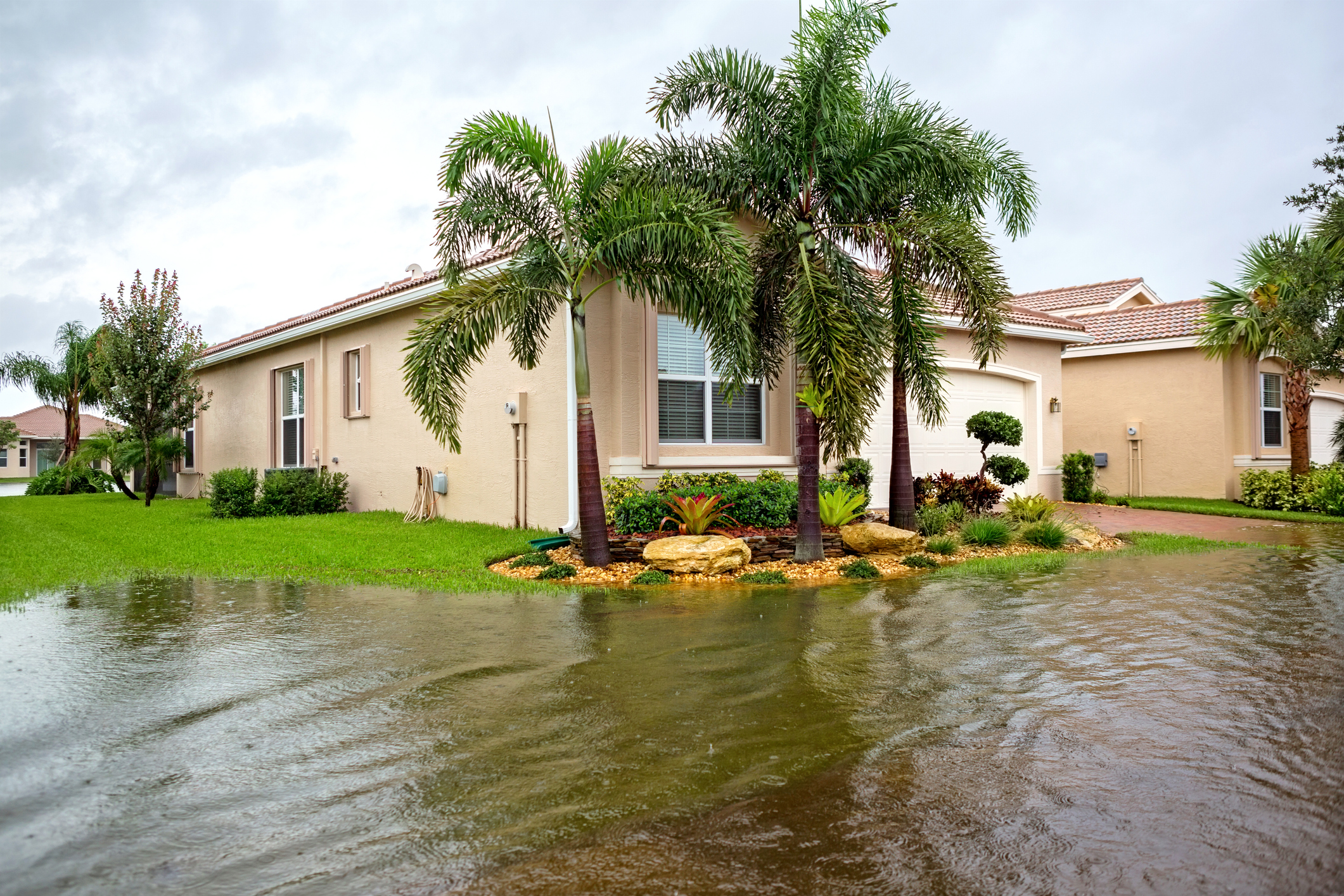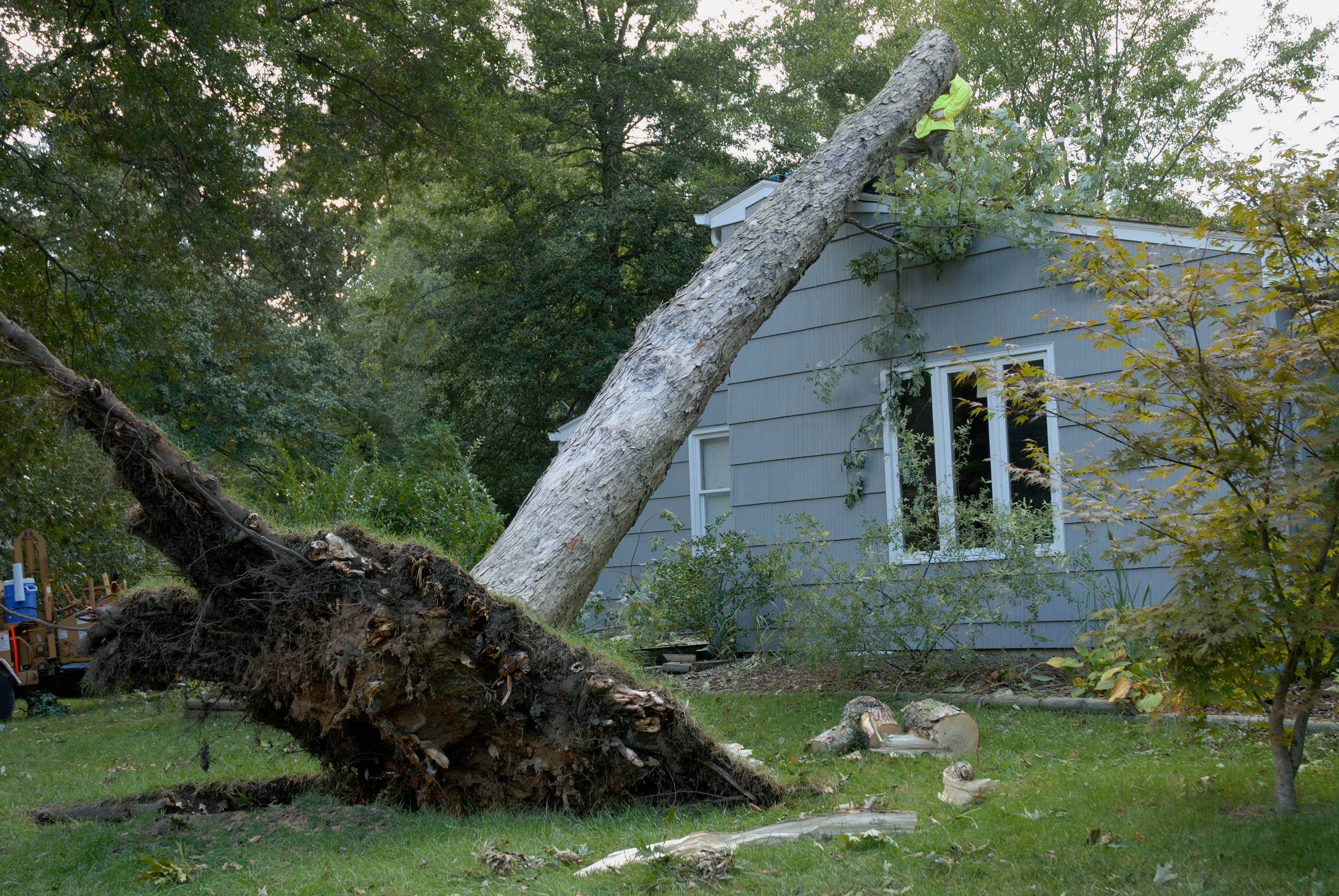

We may earn revenue from the products available on this page and participate in affiliate programs. Learn More ›
Record-breaking weather events are devastating to the people and communities impacted and extremely costly. In 2023, 28 weather events caused more than $1 billion in damage each, totaling a shocking $92.9 billion nationwide, according to the National Oceanic and Atmospheric Administration (NOAA).
As the damage assessments roll in from the most recent hurricanes, Helene and Milton, experts are just starting to gauge whether these events will influence future real estate choices. A new survey conducted by Redfin and Ipsos found that nearly one-third (32 percent) of U.S. residents ages 18 to 34 say they’re reconsidering where they might move in the future after learning about the damage caused by Hurricane Helene. That compares with 15 percent of respondents age 35 and older who feel the same way.
The study focused on how the hurricane news has affected the way people view their housing situation, whether they think insurance premiums will increase as a result of the storm, if they think it will be harder to get insurance, and if these factors influence where they want to move in the future. Respondents were also asked if they think the value of their home will increase or decrease given climate disasters, and if renting is a better option.
We explore why this survey differs from recent trends and the factors that might be influencing this new perspective.

This new data questions past trends.
For several reasons that were triggered by the pandemic, Americans have increasingly been relocating to disaster-prone areas like Florida and the Carolinas. The population of Tampa-St. Petersburg, Florida, for example, has grown by 39 percent since 2000. Yet its location on the Gulf Coast makes it susceptible to hurricanes each season.
Will the latest storms that also reached inland communities, such as Ashville, North Carolina, spur more people to think twice before relocating to these regions? The Redfin survey could present the start of a tipping point in which people not only change their minds about where to move but also cause current residents to leave these high-risk regions as well.
“The Redfin survey reflects what we’re seeing on the ground—hurricanes are no longer just a seasonal concern but a long-term deal-breaker for many,” says Johnny Austin, real estate agent and owner of Sell My House Now in Puyallup, Washington. “Clients are becoming hyper-aware of the financial implications, like rising insurance costs and stricter building codes, and that’s altering their priorities when considering hurricane-prone areas like Florida or the Carolinas.”
However, this possible trend remains nuanced. “It’s not about abandoning the coast altogether,” explains Austin. “Buyers target properties with better natural protection or modern infrastructure. There’s also an uptick in interest in areas historically considered safer, like the inland parts of Georgia or North Carolina,” he says. Nonetheless, Austin believes that extreme weather is reshaping real estate’s physical and financial landscape in these disaster-prone regions.
Apprehension about insurance premiums plays a major factor.
The Redfin survey flagged a key concern: almost one-fourth of respondents overall expect insurance premiums in their area to increase after the storm. Also, nearly 1 in 7 (13 percent) are worried that it will be harder to get insurance for homes in their area after the storm.
These concerns are justified, as many homeowners have already lost coverage or seen their premiums skyrocket because of intensifying natural disasters. According to Insurify, many Americans saw home insurance premiums rise by 20 percent between 2021 and 2023. Florida, California, and Louisiana homeowners have already experienced these changes, and more states like North Carolina are expected to soon face similar insurance challenges.

Natural disasters lead to higher housing prices.
Another problem is that destructive weather events end up leading to increased demand and higher prices for both buyers and renters. The costs of recovery related to emergency reconstruction and stricter building codes all play a role in rising prices. This could scare people away from settling in these areas if they notice how prices keep increasing with every storm.
“Younger buyers, especially, are questioning whether the beachfront dream is worth the potential hassle,” says Austin. “It’s not just the fear of a one-time storm, but the pattern of increasingly severe weather. The new focus is on climate resilience. More than ever, people are asking about home elevation, impact-resistant materials, and community flood defenses. These aren’t questions we got as frequently 5 years ago,” he says.
Concerns about preparation and repair costs may also play a role.
More people might also realize the costs involved in both preparing for major weather events (such as hurricanes) and cleaning up and repairing afterward. An additional Redfin survey found that two in five (40.8 percent) Florida residents have set aside funds for potential home repairs from unpredictable events caused by climate change.
Ongoing maintenance and preparation expenses can add up quickly. Residents in places like Florida need to stay on top of tasks like tree trimming, landscaping, and roof and air conditioner maintenance to keep their homes safe in case a storm arrives. Many also invest in pricey home items like storm shutters, impact-resistant windows, emergency preparedness kits, and backup generators.
Not everyone has the budget for these additional home maintenance needs, so it’s important to consider the total cost of living in regions that tend to experience more natural disasters.
